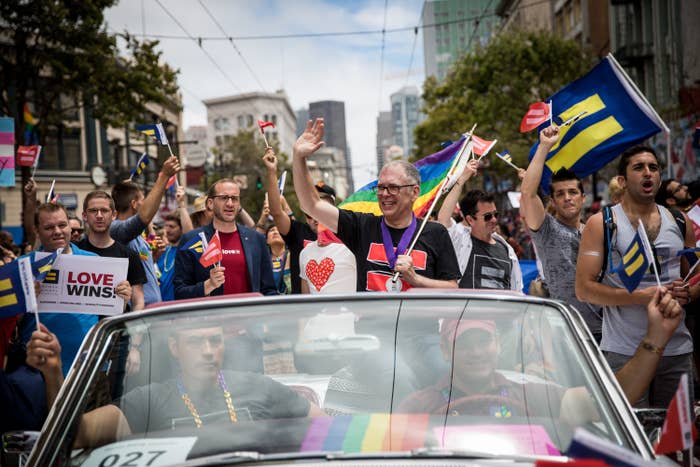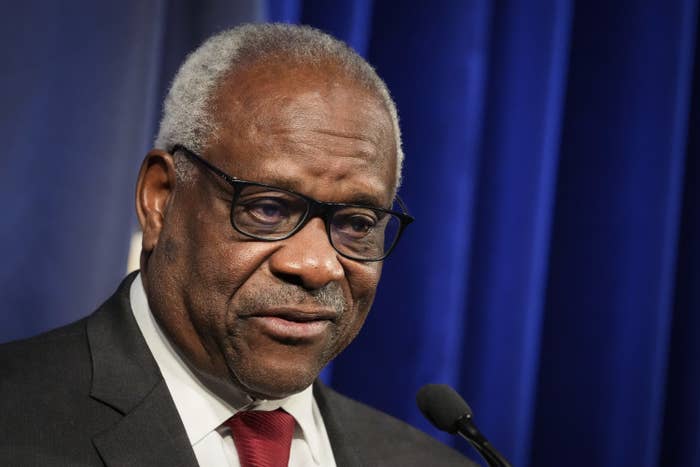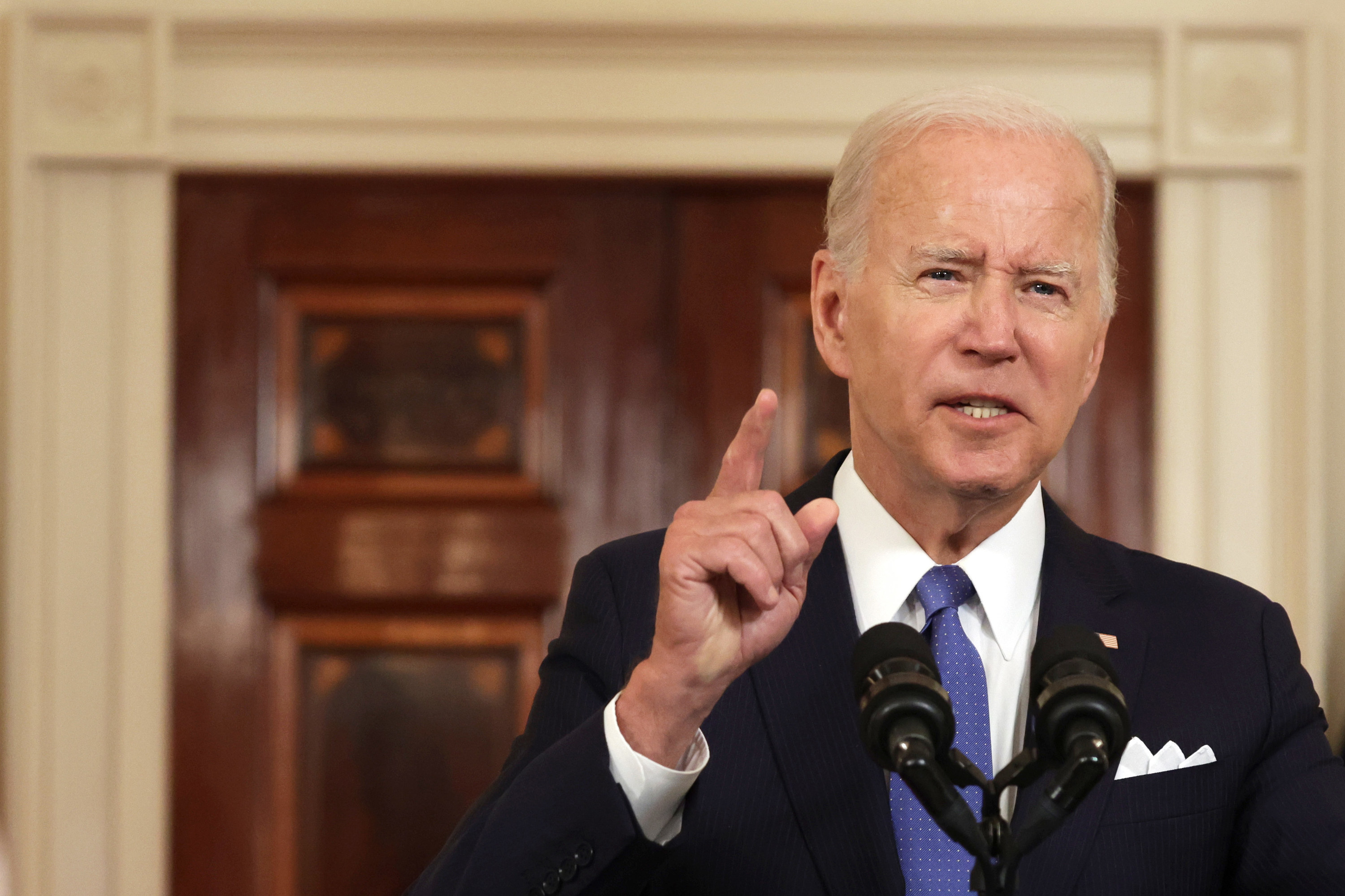
Jim Obergefell is afraid.
When he saw the news on Friday of the historic Supreme Court decision to strike down Roe v. Wade, Obergefell instantly felt horrible for women across the nation. But when he read Justice Clarence Thomas’s opinion that threatened to undo marriage equality, he felt scared for himself.
“I would honestly be lying if I said I weren't afraid that it could all go away,” Obergefell said of the LGBTQ civil rights he helped ensure thanks to his role as lead plaintiff in the 2015 Supreme Court case that legalized marriage for same-sex couples nationwide.
“It made me angry, and it has me terrified. It has me concerned,” Obergefell told BuzzFeed News.
In their searing dissent in Friday’s abortion case, the three liberal justices warned that, in addition to vaporizing federal abortion rights, the top US court was also threatening the future of things like the right to contraception, same-sex relations, and marriage equality.
“No one should be confident that this majority is done with its work,” the liberals wrote.
Writing for the majority, Justice Samuel Alito accused the liberal justices of using their dissent to potentially “stoke unfounded fear” that the ruling would imperil these other rights, arguing they were different because they did not concern “potential life.”
“To ensure that our decision is not misunderstood or mischaracterized, we emphasize that our decision concerns the constitutional right to abortion and no other right,” Alito wrote. “Nothing in this opinion should be understood to cast doubt on precedents that do not concern abortion.”
But not everyone in the majority seemed to agree.
In his separate opinion concurring with the majority that there was no constitutional right to abortion, Thomas said the court should reconsider all the cases that previously established those rights.
In a passage blasting jurisprudence around the 14th Amendment, Thomas said abortion was not a form of “liberty” protected under the due process clause.
He then expressly named the cases that guaranteed the rights to contraception, same-sex relations, and marriage equality — Griswold v. Connecticut (1965), Lawrence v. Texas (2003), and Obergefell v. Hodges (2015), respectively — as being appropriate for the court to “reconsider” given they relied on similar reasoning.
“We have a duty to ‘correct the error’ established in those precedents,” Thomas wrote.
(Observers noted that Thomas, a Black man who is married to a white woman, did not say the court should reconsider Loving v. Virginia, the 1967 case that also relied on the 14th Amendment to guarantee interracial marriage rights.)

Sarah Warbelow, the legal director for the Human Rights Campaign, another LGBTQ rights group, told BuzzFeed News she feared that “radicals” in statehouses around the country would view Thomas’s opinion as a sort of call to arms.
“There are legislators pandering to the base that will ramp up their efforts to continue to pass laws harming LGBTQ people — trying to set up challenges to marriage equality, to same-sex intimacy — and that it will increase violence against the LGBTQ community,” Warbelow said. “Those are the things that will be affected in the immediate aftermath.”
Jennifer Pizer, the acting chief legal officer with the LGBTQ rights group Lambda Legal, said the court’s decision attacked “bedrock rights of freedom and equality.”
“Make no mistake: today’s decision threatens all of these fundamental personal rights,” Pizer said in a statement. “It is an extremist assault on the privacy, self-determination, dignity, and equality of every person in our country.”
Pizer said the assurances in Friday’s decision were “hollow,” given that the conservative justices had said in their Senate confirmation hearings that abortion rights were settled law.
Obergefell, too, had no such faith in the conservative justices not to come for the LGBTQ community next. “I take no comfort in that. I do not believe it,” he said of Alito’s comments. “Those words mean nothing to me.”
Sarah Kate Ellis, president and CEO of LGBTQ media watchdog GLAAD, was also sounding the alarm after Friday’s decision, calling Thomas’s opinion “a blaring red alert for the LGBTQ community and for all Americans.”
Reproductive rights campaigners were also concerned about the potential ramifications.
“This grave decision puts privacy rights on thin ice,” Audrey Sandusky, senior director for policy and communications at National Family Planning and Reproductive Health Association, told BuzzFeed News.
“The rationale in today’s opinion could usher in an era of severely restricted access to contraception as states seek to classify IUDs and emergency contraception as abortifacients,” Sandusky said. “People’s right to access the family planning method of their choice is indeed vulnerable in this moment, and that could be hugely consequential for years to come.”

It wasn’t just activists who were concerned.
Speaking at the White House, President Joe Biden noted the importance of Roe in recognizing a right to privacy that was relied upon in subsequent cases.
Pointing to Thomas’s words, Biden said, “This is an extreme and dangerous path the court is now taking us on.”
Warbelow with the HRC stressed that, for now, it appeared that Thomas stood alone in his position.
She also noted that, as recently as 2020, the conservative Chief Justice John Roberts Jr. and Associate Justice Neil Gorsuch ruled that a federal ban on sex discrimination in workplaces also protects employees on the basis of sexual orientation and gender identity. “Some of the conservatives have some degree of support for LGBTQ folks,” Warbelow said.
That decision, however, relied on the equal protection clause in its reasoning and not the right to privacy that had been imbued by the court into the 14th Amendment in prior cases like Roe.
Warbelow noted that the equal protection clause also formed the basis, in part, for the decisions in Lawrence and Obergefell. Additionally, she noted that, although Roberts wrote the lead dissent in Obergefell, he did not speak out two years later when the court said Arkansas was not following that case’s precedent — although other observers at the time did not see Roberts as resigning himself to same-sex marriage rights.
Obergefell said he would be devastated if his case were overruled.
“I'd be devastated because that's the wrong thing for our nation — just like this decision today is the wrong thing for our nation,” he said.
He added that he’d be spending this weekend’s Pride celebration in his hometown of Sandusky, Ohio, marching for his civil rights. “I don't know what to tell people other than we have come too far to let these things be taken away from us,” Obergefell said.
Warbelow also acknowledged the grim timing of the court’s opinion dropping during Pride month and two days before New York City, the home of the LGBTQ rights movement, was set to host its annual Pride parade.
“Our message is to take to the streets, to get out there, to demonstrate for the world that LGBTQ people aren’t going to back down and cower in the corners,” Warbelow said, “that we are proud to be who we are, and we are entitled to full and equal rights.”
